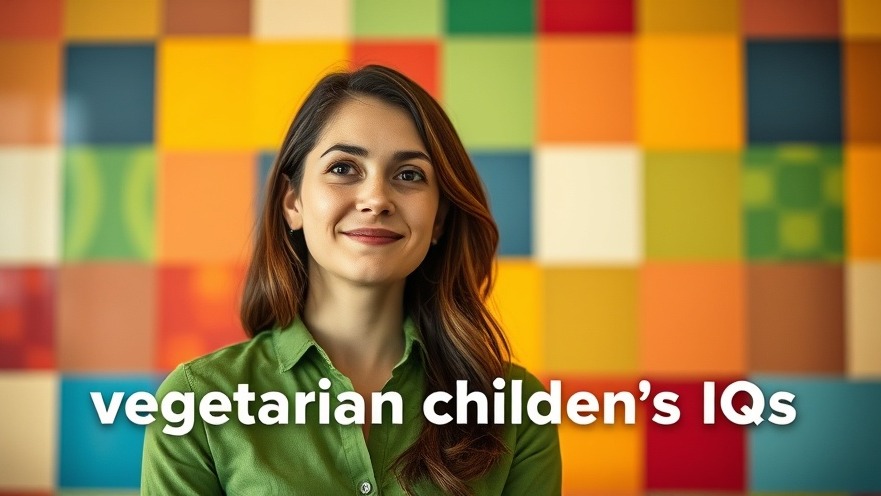
Unlocking the Link Between Diet and Intelligence in Children
As societal awareness around diet and nutrition grows, many parents remain curious about whether dietary choices impact their children's cognitive development. One intriguing question often arises: are vegetarian children smarter than their omnivorous peers? Recent research suggests that vegetarian children may, indeed, score about 16 IQ points higher than average. This could lead to an increased mental age that exceeds their chronological age by approximately a year, making a compelling case for vegetarian diets.
In 'Are the IQs of Vegetarian Children Higher?', the discussion dives into the intriguing relationship between dietary choices and intelligence, exploring key insights that sparked deeper analysis on our end.
Confounding Factors to Consider
While these findings are striking, the results invite further inquiry into potential confounding factors. For instance, it is plausible that a correlation exists between parental education levels, dietary habits, and children's IQs. For example, more educated parents might be more inclined to adopt a vegetarian lifestyle, potentially passing down both their intellect and dietary choices to their children. This raises an important question: do children become vegetarian because they are smarter, or are they smarter because they adopt a vegetarian diet?
Longitudinal Studies Shine a Light
A UK study that followed 8,000 children reveals significant insights. The researchers measured IQs at age 10 and later checked which of them became vegetarians as adults. Results showed a notable trend: intelligent children were more likely to adopt vegetarian diets. This indicates that higher IQs potentially motivate healthier dietary choices, creating a cycle of intelligence and wellness.
Bountiful Benefits of a Plant-Based Diet
The advantages of vegetarian diets extend beyond intellect. The largest nutrition association worldwide proposes that plant-based diets are suitable for all life stages, including childhood. Not only can these diets promote better mental clarity—as Benjamin Franklin noted—but they can also influence physical health positively.
Child Growth and Development: The Nutritional Nexus
A common concern among parents revolves around the impact of vegetarianism on children's growth. While some studies indicate that restrictive diets can lead to stunted growth, others suggest that children raised on plant-based diets may be taller than average. After analyzing numerous systematic reviews, experts found that discrepancies in height often correlate with age differences. Once adjusted for age, no significant height differences emerged among children on vegan diets.
Mitigating Obesity with Vegetarian Choices
In the landscape of children’s health, the role of nutrition is paramount. Studies show that vegetarian diets may correlate with a lower prevalence of obesity in both children and adults. As society grapples with rising obesity rates, understanding effective dietary choices becomes crucial. Plant-based eating might not only serve cognitive development but also combat broader health issues such as childhood obesity.
Connecting Diet, Exercise, and Mental Health
For middle-aged and senior audiences, focusing on holistic approaches to health, including the interconnectedness of diet and fitness, is essential. Vegetarian diets often align with heightened energy levels, considerably benefitting mental health and fitness routines. In conjunction with exercise, these diets can enhance cognitive function, aligning with numerous energy and nutrition tips aimed at promoting longevity.
Empowering Choices for Healthier Lifestyles
This interplay between dietary decisions and cognitive development demonstrates the importance of well-informed parenting. Adopting vegetarian or plant-based options can provide numerous benefits for children and families alike. By focusing on healthy eating tips and integrating fitness routines into daily life, families may nurture both physical and mental well-being.
Conclusion: A Call to Embrace Healthy Choices
As the debate continues on the educational impact of diet, it remains clear that embracing a holistic approach to nutrition and exercise can empower families to foster healthier lives. For our readers—particularly those deeply invested in nutrition and well-being—consider incorporating vegetarian meals into your lifestyle and sharing these practices with the younger generation. By doing so, you not only prioritize your health but also pave the way for a brighter future for your children.
 Add Element
Add Element  Add Row
Add Row 



Write A Comment